UK firms cut more than 106,000 jobs amid coronavirus pandemic
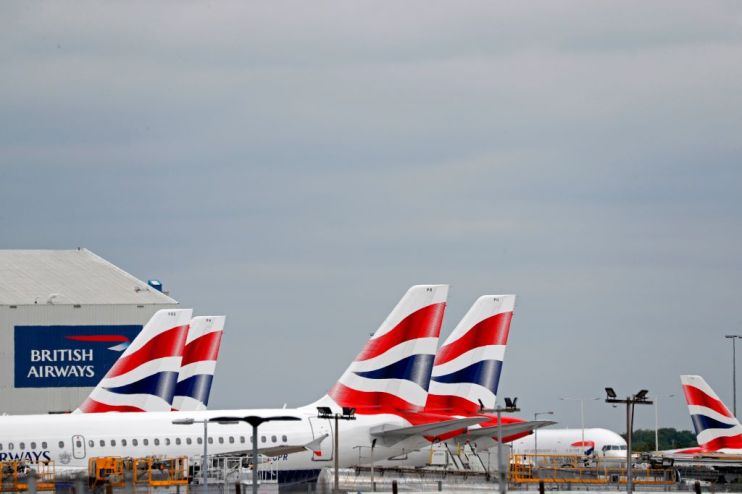
The coronavirus pandemic has battered the UK economy since it arrived in early 2020 – and no sector has remained unscathed, with more than 100,000 job cuts planned during the pandemic.
The government’s furlough scheme has allowed millions of people to keep getting a paycheck, but fears are growing that when this is phased out in October many will have no job to return to.
Some of the UK’s largest companies including British Airways, Marks & Spencer and BP have cut thousands of jobs with further announcements expected in the coming months.
In total, 106,319 UK job cuts are the direct or indirect result of the pandemic. But including HSBC’s 35,000 redundancies planned before coronavirus struck, the total is closer to 150,000.
Here is a rundown of which UK firms have been hardest hit.
British Airways – 12,000 jobs
When British Airways bought Spanish airline Iberia in 2011, forming parent company IAG, it was in part to make the company more resilient to market shocks.
But they did not anticipate a shock this big, or this long-lasting, with the vast majority of flights grounded for months, and little hope of things returning to normal any time soon.
As a result, BA announced that it was holding consultations to cut 12,000 jobs, leading MPs to brand it a “national disgrace”.
Virgin Atlantic – at least 3,000 jobs
Richard Branson’s airline had spent much of the last year campaigning to be recognised as a “second flag carrier,” behind arch-rival BA. Now, the company is fighting for survival, cutting at least 3,000 jobs and pulling out of Gatwick Airport.
Chief executive Shai Weiss said: “We have weathered many storms since our first flight 36 years ago but none has been as devastating as Covid-19 and the associated loss of life and livelihood for so many.”
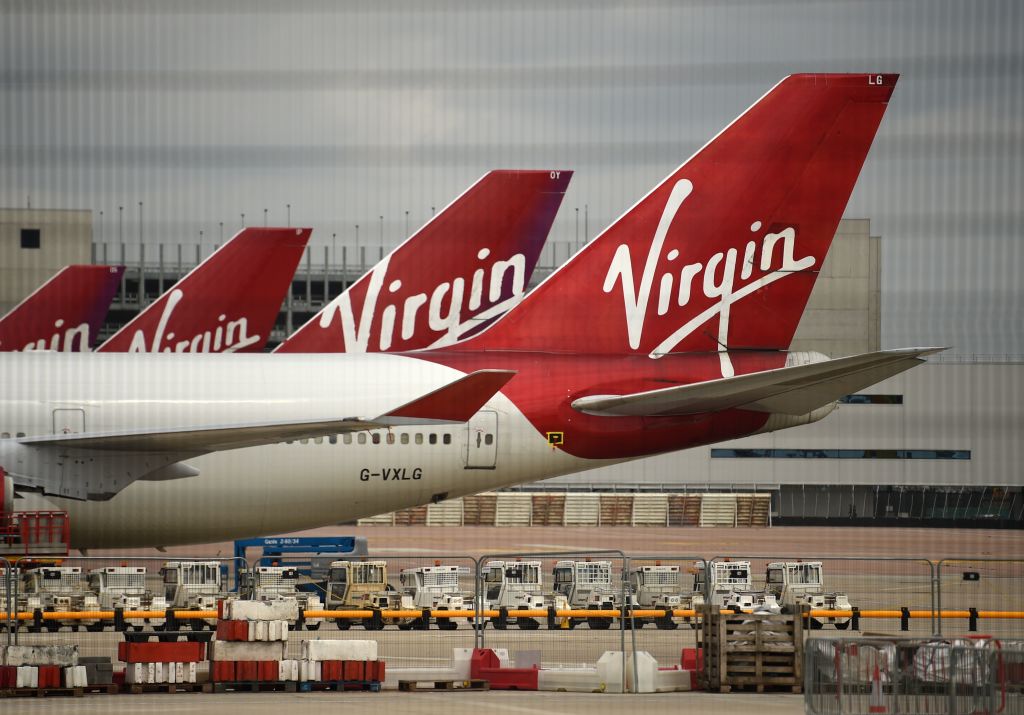
Virgin Atlantic announced the return of flights to 17 destinations in June and called on the government to scrap its 14-day quarantine for inbound travellers.
Easyjet – 4,500 jobs
Easyjet has been one of the strongest performers in UK aviation in recent years, but like it’s peers, it has had nowhere to fly for nearly three months. As a result, it is cutting about 30 per cent of its staff, equating to 4,500 jobs.
Easyjet boss Johan Lundgren said: “We realise that these are very difficult times and we are having to consider very difficult decisions which will impact our people, but we want to protect as many jobs as we can for the long-term.”
Ryanair – 3,000 jobs
Ryanair boss Michael O’Leary has a reputation for not mincing his words, and as he announced that he would be forced to cut 3,000 jobs, he complained that foreign airlines such as Lufthansa have had more support than Ryanair.
“Air France and Lufthansa are subsidy junkies hoovering up state aid,” he said on BBC Radio 4’s Today programme. Ryanair employees who survive the round of cuts will be forced to take pay cuts as much as one-fifth of their salaries.

Aer Lingus – 900 jobs
The Irish airline is also part of IAG, along with British Airways and Iberia. It has cut 900 jobs. It has faced widespread criticism for slashing some staff’s pay by as much as 70 per cent (yes, you read that right).
Marks & Spencer – 7,950 jobs
The supermarket chain announced in mid-August that it was slashing 7,000 jobs within three months after coronavirus hit its already struggling business.
Marks & Spencer said the cuts would focus on its central support centre, regional management and UK stores. The job losses come on top of a previously announced round of 950 store management roles announced in July.
Swissport – 4,175 jobs
Baggage handler Swissport has been faced with much the same issues as the rest of the aviation industry, and it announced on 24 June that it would cut 4,175 jobs – about half of its workforce.
“This is devastating news. At least 4,000 workers – and possibly many more – will lose jobs which are essential to regional economies,” GMB national officer Nadine Houghton said.
“With Swissport now considering job cuts on this scale we have deep concerns about the viability of many of our regional airports and the benefits for regional connectivity that they bring.”
Heathrow airport – at least 500 jobs
The UK’s main international airport saw passenger numbers drop to an all time low in May, down 97 per cent on normal levels.
It has already cut about 500 managerial jobs, but has launched a voluntary redundancy scheme for the rest of its workforce. About one-third of its 7,000 strong workforce is at risk.
John Holland Kaye, Heathrow CEO, told City A.M. last month that as many as 25,000 jobs could go at the airport unless the government relaxes quarantine rules to boost travel.
Centrica – 5,000 jobs
The owner of British Gas has been hit hard by the pandemic, and is looking to cut nearly one-fifth of its workforce, or 5,000 jobs.
More than half of these will be in management roles, with the company trying to slim down its operation and reduce bureaucracy. Of its 40-strong leadership team, 20 are likely to be heading for the exit.

Ovo Energy – 2,600 jobs
The UK’s second largest energy supplier is planning to cut 2,600 jobs following its merger with SSE.
Ovo, which closed a £500m deal for SSE’s retail arm this year, said the coronavirus pandemic had accelerated its integration plans for the businesses.
BP – 10,000 jobs
The oil giant plans to make 10,000 people redundant across the globe, including an estimated 2,000 UK job cuts. It comes after the coronavirus dramatically reduced global demand for oil.
In an email to staff, chief executive Bernard Looney said: “The oil price has plunged well below the level we need to turn a profit.
“We are spending much, much more than we make – I am talking millions of dollars, every day.”

Airbus – 1,700 UK job cuts
Europe’s largest planemaker Airbus said that it will cut 1,700 jobs in the UK as part of 15,000 redundancies around the world.
The UK’s Unite union said plans by Airbus to cut 1,700 jobs in Britain will affect its operations across the country, including at its two biggest factories.
Unite said 1,116 manufacturing jobs would be lost, with Airbus’ largest UK factories in North Wales and Bristol to be affected, along with 611 office jobs.
Bombardier – 600 UK job cuts
Manufacturing giant Bombardier today said it will cut 2,500 jobs in its aviation division as the coronavirus crisis sparks a slump in demand. Its Northern Ireland manufacturing plant will account for 600 UK job cuts.
Rolls-Royce – 9,000 jobs
The jet engine maker has long been one of the jewels in the crown of British manufacturing. But that was not enough to stop it cutting 9,000 jobs, of which 3,000 will be in the UK.
About 1,500 of these UK job cuts will be at its Derby headquarters, where it is partway through building a massive new engine manufacturing facility.
Chief executive Warren East said: “This is not a crisis of our making. But it is the crisis that we face and must deal with.”
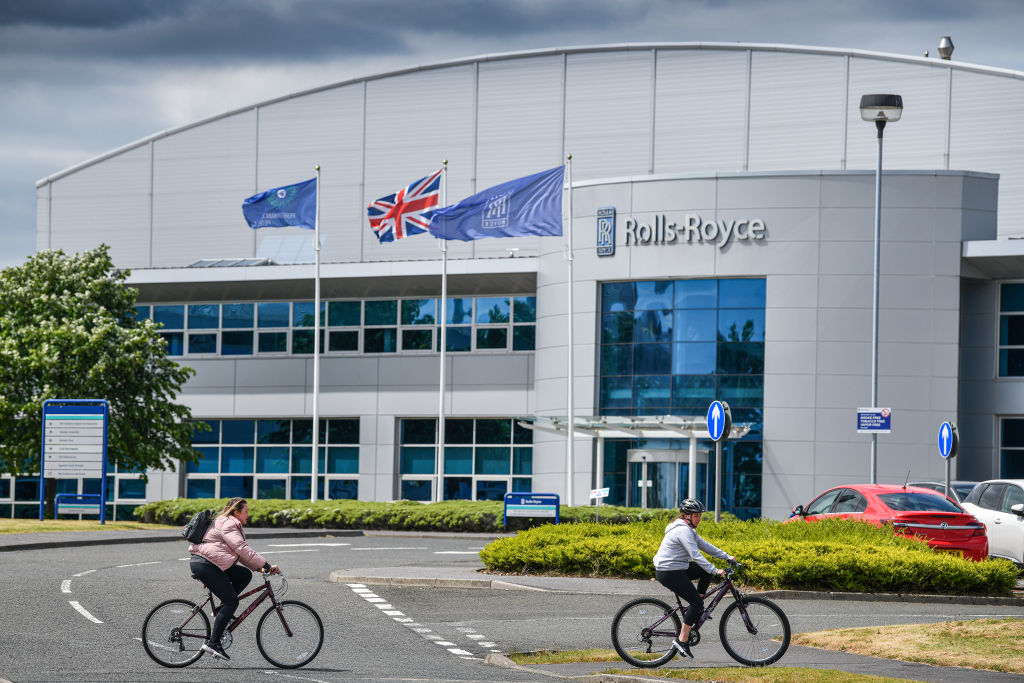
Bentley – 1,000 UK job cuts
The luxury car manufacturer has around 4,200 employees, but nearly a quarter of those will go in the near future.
The company had hoped to grow its sales while it embarked on a restructuring plan, allowing it to avoid cutting UK jobs. However, it said this plan was “clearly derailed by the impact of the pandemic”.
Aston Martin – 500 jobs
Since its disastrous Initial Public Offering in 2018, Aston Martin has been struggling, and the coronavirus could not have come at a worse time.
The firm is also looking to cut costs in other areas, including contractor numbers, marketing and travel, as it battles its way back to profitability.
It comes months after Lawrence Stroll, the billionaire fashion tycoon, took over the firm in January. CEO Andy Palmer was sacked under a management shake-up in late May.
Jaguar Land Rover – 1,100 UK job cuts
The British manufacturing giant is to cut 1,100 jobs from its UK factories. It will likely affect people working at Halewood on Merseyside, and Solihull and Castle Bromwich in the West Midlands.

HSBC – 35,000 jobs
HSBC is resuming a massive redundancy plan that had been put on pause after the outbreak of coronavirus, with 35,000 jobs set to be cut worldwide.
The job cuts will be made over the medium term, while the lender will also freeze almost all external recruitment, chief executive Noel Quinn said in a memo sent to the bank’s 235,000 staff worldwide.
HSBC had postponed the job cuts, part of a wider restructuring programme to cut $4.5bn (£3.6bn) in costs, in March.
At the time, the lender said the extraordinary circumstances of the coronavirus pandemic meant it would have been wrong to cut staff.

TSB – 929 jobs at risk
TSB has told cashiers that their jobs will be phased out at the start of 2021, following a steep decline in customers banking in its branches due to the pandemic.
Those affected by the cuts will have to retrain, change roles or take voluntary redundancy, according to a staff memo seen by Reuters.
A total of 929 staff will be involved in the restructuring, a TSB spokesman said.
G4S – 1,150 job cuts
Outsourcing giant G4S will cut more than 1,150 jobs as part of a restructuring of its cash solutions division.
The firm said it was streamlining its cash handling service to “better align it with the needs of our customers”.
Accenture – up to 900 job cuts
US consultancy firm Accenture, which employs 10,000 people in the UK, will make up to 900 roles redundant.
The firm will start consulting on the job cuts in the middle of this month. It expects between 700 to 900 employees to depart.
In a note to staff seen by the Guardian, which first reported the cuts, Accenture said: “We went into the crisis with an overcapacity of people relative to demand. The crisis has caused additional strain on the business due to lower demand and reduced national attrition.
Johnson Matthey – 2,500 UK job cuts
Manufacturing firm Johnson Matthey announced that it will cut 2,500 jobs over the next three years as a result of the pandemic.
The FTSE 100 company said that the crisis had knocked its underlying profit by £60m as it unveiled its annual results earlier this month.
In a statement, Johnson Matthey boss Robert MacLeod said that although the firm had already made £120m in cost savings, it needed to be “even more efficient” to maintain its competitiveness.
The Restaurant Group – at least 1,500 UK job cuts
The owner of Wagamama, Frankie & Benny’s and Chiquito initially said in March that most Chiquito branches and all of its Food & Fuel pubs would not reopen after the lockdown, leading to 1,500 UK job cuts.
Then, in June, it announced plans to close 125 of its sites, mostly Frankie & Benny’s, as the company seeks to push down rents to weather the financial storm of the coronavirus crisis. The closure puts around 3,000 jobs at risk.
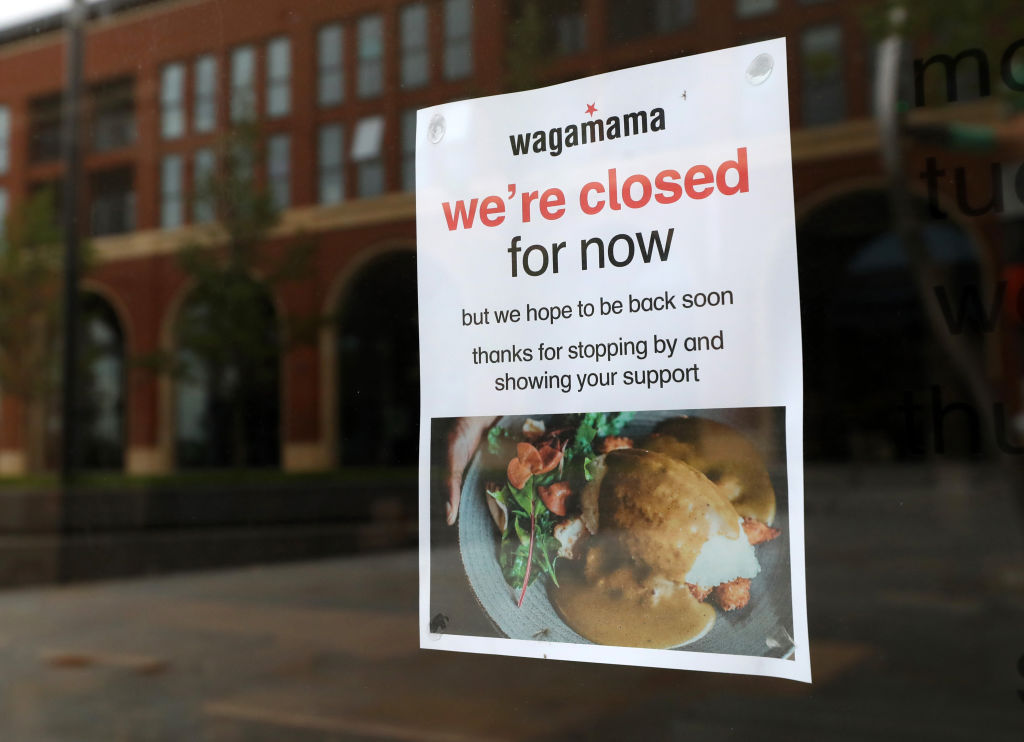
Monsoon Accessorize – 545 jobs
Monsoon Accessorize founder Peter Simon bought the struggling business out of administration earlier this month, in a move aimed at saving both brands but cutting 545 jobs in the process.
Simon was on track to reopen 157 stores of the original 230 by the end of July, 57 more than planned following landlord negotiations.
That would save potentially 2,400 jobs after Monsoon Accessorize fell victim to the coronavirus lockdown.
Clarks – 900 UK job cuts
Clarks is preparing to slash 900 corporate roles, which will be partially offset by the creation of 200 new jobs.
Around 700 workers are expected to leave the footwear retailer over the next 18 months, as the company “reviews funding options with selected advisers” to address the short-term liquidity needs caused by the pandemic.
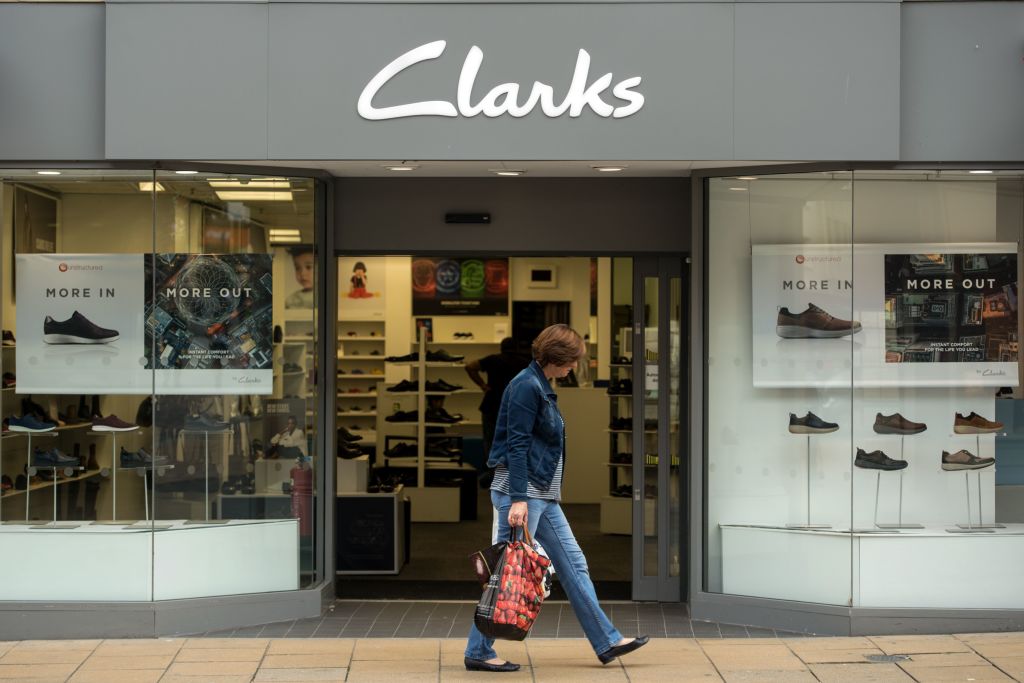
Oasis and Warehouse – 1,800 jobs
Oasis and Warehouse were bought out of administration by Hilco in April, resulting in 1,800 UK job cuts.
The company’s digital brands were later bought out by fast fashion retailer Boohoo.
Mulberry – 470 UK job cuts
The fashion and accessories brand said in June it will cut a quarter of its global workforce, and has started a consultation with the 470 staff at risk.
John Lewis – 1,300 jobs at risk
John Lewis has announced it will not reopen eight stores after lockdown, putting around 1,300 jobs at risk.
The retailer said the stores, which include its Birmingham’s Bullring store, had been struggling before the pandemic hit.
Around 1,300 employees will enter consultations over potential redundancies. The department store said it will attempt to offer alternative jobs within the business, such as at Waitrose or online, to workers that are made redundant.
TM Lewin – 600 job cuts
Last month century-old shirtmaker TM Lewin went into administration, with 600 jobs lost as a result.
The company will close all 66 of its physical stores, and will only continue trading online, after a company hired to restructure the menswear company decided its high street offering was beyond saving.
The decision came less than two months after the 122-year-old retailer was bought by Stonebridge Private Equity through its subsidiary Torque Brands.
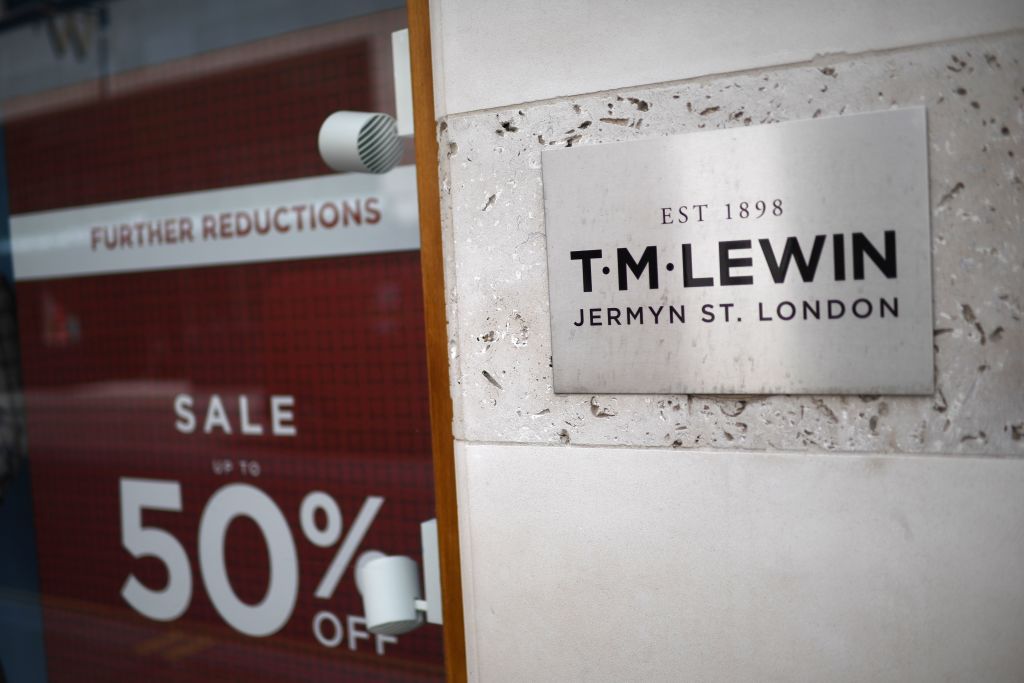
Boots – 4,000 jobs
Boots has announced it will close 48 stores and cut 4,000 jobs after months of closure during lockdown.
The pharmacy chain has said it will shift its focus to online sales by investing in its digital platform, after its website saw a 78 per cent increase in sales over lockdown.
Burger King – 1,600 jobs at risk
Burger King has warned up to 10 per cent of its stores could close, putting up to 1,600 jobs at risk.
Chief executive Alasdair Murdoch said the restaurant chain could close between five and 10 per cent of its 530 restaurants, which could affect 800 to 1,600 jobs.
“If we can possibly avoid it, we will,” Murdoch told the BBC.
SSP Group – 5,000 job cuts
Catering company SPP, which owns Upper Crust, said it would slash 5,000 jobs due to the ongoing damage to the travel sector.
The job cuts will largely affect SSP’s UK head office and UK operations, the company said, at a cost of between £8m and £10m.
Coronavirus has forced SSP to find cost savings as travel bans and UK-wide lockdowns led to a severe drop in revenue.
Travis Perkins – 2,500 UK job cuts
Travis Perkins will cut 2,500 jobs – around nine per cent of its workforce – as a result of the pandemic.
The builders merchant said the losses would result from the closure of around 165 of its branches, plus UK job cuts within its distribution, administration and sales functions.
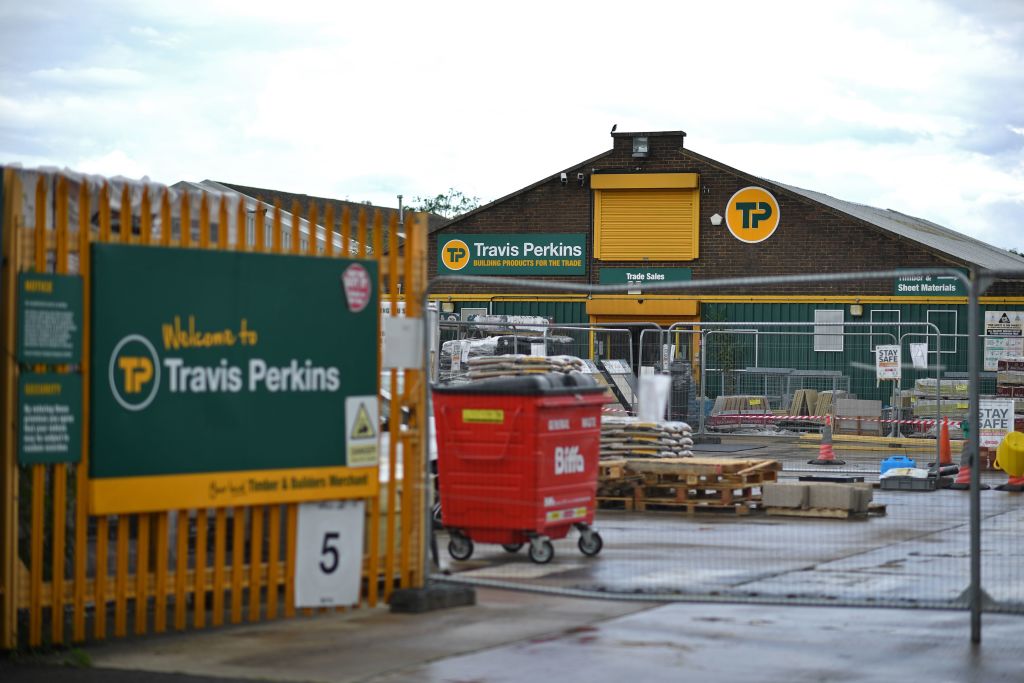
DW Sports – 1,700 jobs at risk
Gym chain and sportswear retailer DW Sports has collapsed into administration, putting 1,700 jobs at risk.
DW Sports closed 25 of its 75 stores and ceased trading through its website immediately.
The remaining 50 retail sites will continue to trade, but have been moved into closing down sales.
DW Sports said it is “inevitable” that some of its 73 gyms will permanently close following the coronavirus lockdown.
Pizza Express – 1,100 job losses
Pizza Express is planning to close 67 UK restaurants due to the coronavirus pandemic, putting 1,100 jobs at risk, as the casual dining chain put itself up for sale.
The company announced that it will launch a company voluntary arrangement (CVA) in the “near future”, which will see it close 15 per cent of its 449 restaurants in the UK.
Pizza Express has appointed investment bank Lazard & Co to launch a sales process. It will also divest its business in China.
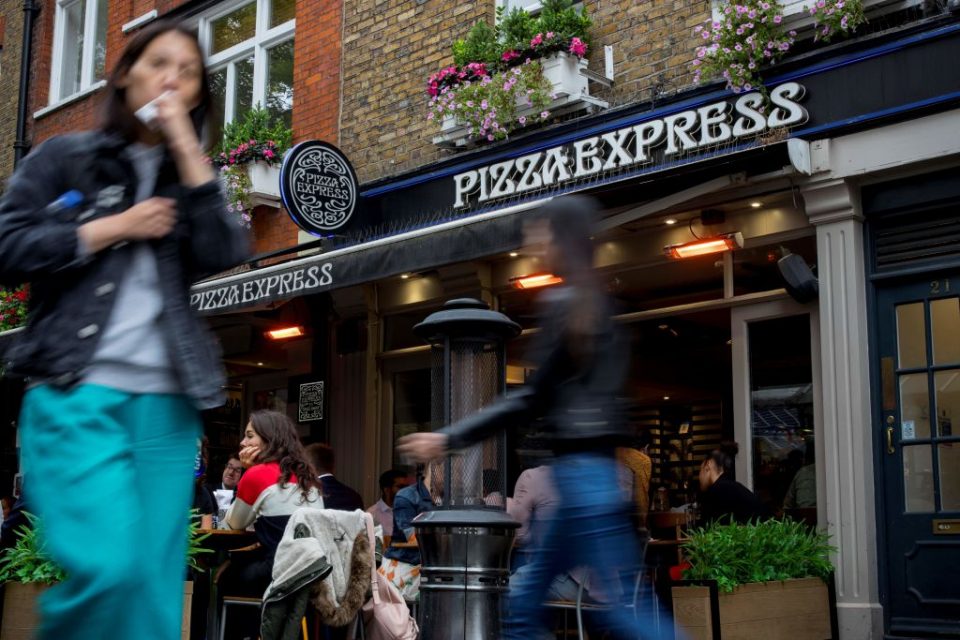
“The Covid-19 crisis has had a profound impact on the entire hospitality sector, with the UK-wide lockdown reducing revenues significantly,” Pizza Express said in a statement this morning.
“The business and its advisers have therefore undertaken an extensive review of its operations to plan appropriately for the future.”
Dixons Carphone – 800 roles cut
Dixons Carphone has announced it will slash 800 roles as part of a store management restructuring plan.
The retailer, which owns Carphone Warehouse and Currys PC World, said the job cuts were part of a plan to create “one joined up business”.
Dixons Carphone said it will remove retail manager, assistant manager and team leader roles, as well as business adviser positions in stores without a business hub.
It will create new sales manage, customer experience manager and operational excellence manager roles as t seeks to integrate its electricals and mobile teams.
Debenhams – 6,500
Debenhams has axed 2,500 jobs as it seeks to reduce costs following the coronavirus lockdown, in the latest blow for the struggling UK high street.
The department store chain, which permanently closed 20 stores during lockdown, said the trading environment is “clearly a long way from returning to normal” after lockdown restrictions were lifted.
The latest round of cuts are on top of the 4,000 redundancies announced since May, the BBC reported, meaning the high street brand has now cut a third of its workforce during the coronavirus pandemic.
BBC – 970 job cuts
The BBC said it will axe 520 jobs in its news department as a result of the coronavirus crisis, marking 70 more redundancies than the broadcaster had originally planned.
The BBC said in January that it intended to axe 450 jobs within its news department, but plans were put on hold due to the pandemic.
The redundancies are separate to the 450 job cuts in the BBC’s regional news units announced last week.
Guardian Media Group – 180 job cuts
The paper announced plans to cut 180 jobs in both its editorial and commercial departments, after revenue plunged more than £25m during the coronavirus crisis.
The newspaper group said the job cuts will mostly affect its advertising, Guardian Jobs, marketing and Guardian Live departments, with 70 additional redundancies in its editorial unit.
The job cuts will reduce the Guardian’s overall workforce by 12 per cent.
Arup – 350 job cuts
Engineering consultancy Arup said it would get rid of 350 jobs from its UK arm, roughly five per cent of its staff.
The firm said it needed to reshape its business in light of the pandemic.
Pret A Manger – 1,000 jobs
The sandwich chain said in July that it would close 30 stores putting 1,000 jobs at risk. The lockdown and moved to home working hurt Pret which relies heavily on office workers and commuters picking up sandwiches and drinks at its city centre locations.
Natwest – 500 jobs
The bank said in August that it would closed one of its London offices and slash up to 500 jobs.
Natwest said it will carry out a voluntary redundancy plan affecting 550 roles in its branches and premier banking service. It will also close its Regents House office in Angel, which served as one of the bank’s biggest tech hubs and can house roughly 2,500 employees.
In total roughly 800 staff members are expected to leave in the redundancy round once part-time workers are included, Reuters reported, citing the Unite union.